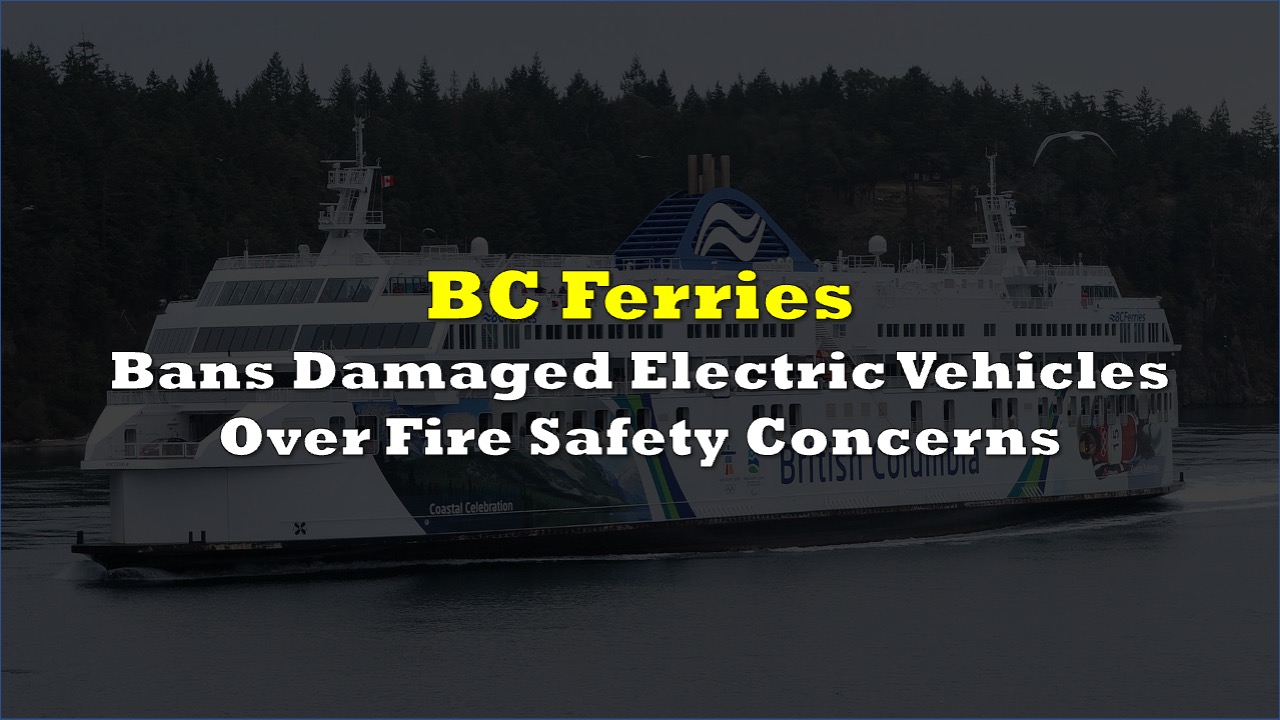BC Ferries has prohibited damaged electric vehicles from traveling on its vessels, citing federal safety regulations and fire risks associated with lithium-ion batteries.
The ferry operator clarified existing policies following federal rules requiring damaged EV batteries to be detached from vehicles before marine transport. The policy targets vehicles with major damage, including exposed batteries, fluid leaks or wiring issues, and prohibits tow trucks carrying non-operational EVs.
Transport Canada said damaged lithium batteries pose serious fire hazards that are “an even greater risk to safety in the confined vehicle space of a roll-on/roll-off ferry.”
The change has created challenges for towing companies serving British Columbia’s Gulf Islands, which rely on ferry transportation for mainland access.
“There’s no way for me to tow it over on a flat bed tow truck because their wording stated that if it is inoperable — which is going to be on a tow truck — I can’t take it onboard their vessels,” Jonathan Vipond, owner of Salt Spring Island Towing, told Chek News.
Damaged EVs can still be transported through commercial cargo or barge operators, according to Transport Canada. Functional electric vehicles without damage can still travel on BC Ferries normally.
Information for this story was found via the sources and companies mentioned. The author has no securities or affiliations related to the organizations discussed. Not a recommendation to buy or sell. Always do additional research and consult a professional before purchasing a security. The author holds no licenses.









